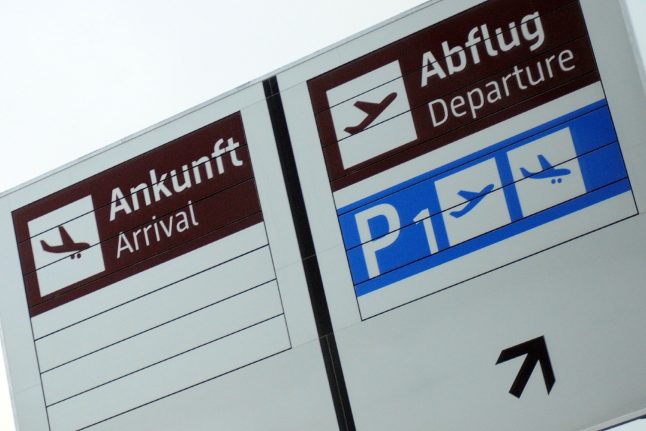Over 160 countries outside the EU are currently considered ‘high risk’ by Germany. As a result, authorities have issued warnings against non-essential travel to them.
However, this has fuelled growing concerns for organisations and businesses affected by the restrictions.
Now a group of various associations, including the Federation of German Industries (BDI) and the Federation of German Wholesale and Foreign Trade (BGA), have teamed up to ask the government to change its course of action on rules on foreign travel.
If restrictions are further extended, there would be detrimental economic effects that would transcend far beyond tourism, according to the collaborative report.
The group said a “proportionate” strategy must be found.
READ ALSO: Who is allowed to travel to Germany from outside the EU?
International trade and the exchange of goods as well as investment activity will be severely affected by the restrictions.
Companies focused on export, for example, are currently often unable to send out staff to their foreign clients or suppliers due to the many border closings and quarantine measures.
On top of this, the cancellation of international trade fairs has meant an absence of new orders.
The German government recently extended its travel restrictions for over 160 countries outside of the EU until September 14th. This Wednesday could see the cabinet make a decision regarding next steps.
READ ALSO: Germany extends travel warning for over 160 countries
'Major impact'
The report by the various associations states that firms acknowledge that travel restrictions are instrumental in containing the pandemic. However, it also notes that “travel restrictions carry the risk of having a major impact on economic activities such as trade and investment”.
The associations are calling for an economic impact assessment to be part of future considerations by the Foreign Office when travel warnings are decided. In future, they believe, the Economy Ministry should play a part in deciding travel rules.
In terms of global travel restrictions, the varying situations in different countries would have to be taken into account.
According to the document, the negative impact of travel restrictions would leave many companies in a fragile state: “In contrast to the beginning of the pandemic, the liquidity and capital reserves have now been depleted in many ways,” the report said.
The threat of bankruptcy is widespread, it added.
The associations believe it is important to search for solutions that support both public health and the economy.
“For example, many companies are pinning their hopes on rapid tests that could at least reduce travel restrictions and quarantine periods,” said the report. “In order to minimise the risk for vacationers and business travellers as well as for the general public, sufficient test capacities should be made available for travel returnees from risk areas.”
Translation by Stephanie Nourse



 Please whitelist us to continue reading.
Please whitelist us to continue reading.
Member comments